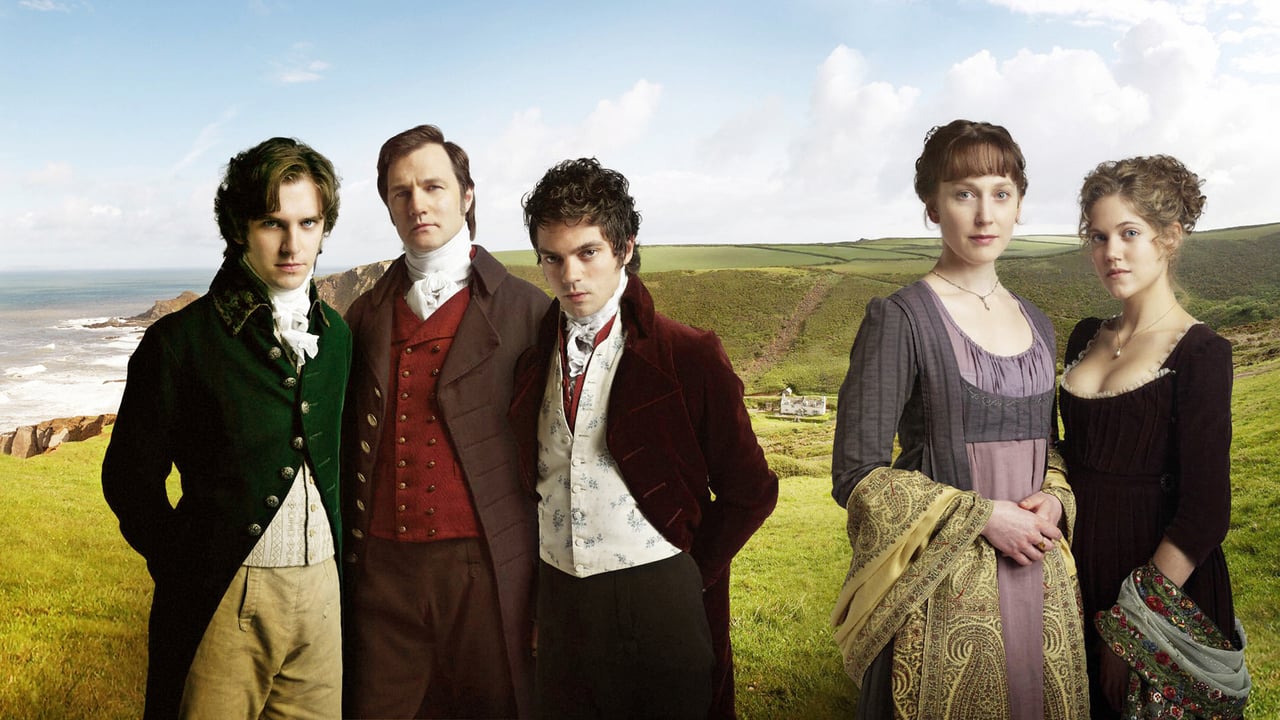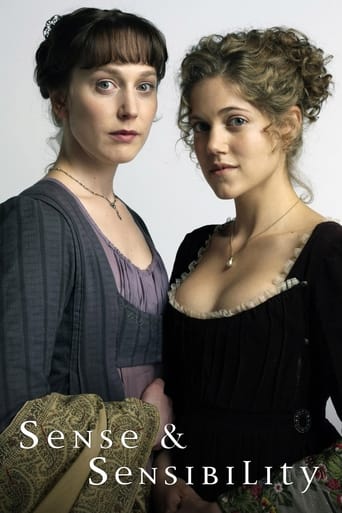

The actress who played Elinor gasps throughout. In this period in history, it would have been perceived as rude to have an open mouth. At times she looks like a landed fish and at the end the shoulder shaking is hilariously bad acting. So her portrayal lets this version down. Left me wondering why she was chosen for this role.The rest of the cast are quite good.
... View MoreThe acting was quite good. All the principle characters were well represented. The problem was, Jane Austen's dialogue is perfect, as are all her set pieces. No updates are required, no new wives, older sisters, or children she did not herself see fit to place in her story. Duels, characters showing up where they are not meant to be. And all of it pointless, adding nothing to the story, the plotting or the characters. How is the story improved by Sir John Middleton suddenly having a wife, and Lucy Steele an older sister? Watch the 1995 version.
... View MoreIf this is the first film adaption of one of Jane Austin's books that you have watched you will find it really enjoyable. As someone who has seen Tom Wright's 'Pride and Prejudice' and Ang Lee's 'Sense and Sensibility', I was really disappointed to see that this version had blatantly and lazily ripped off cinematography from both. To make it worse, they did a far worse job of it. It was like eating off-brand Doritos; you really want to enjoy it but it's just reminding you of something that's far better.If this is the first film adaption of one of Jane Austin's books that you have watched you will find it really enjoyable. As someone who has seen Tom Wright's 'Pride and Prejudice' and Ang Lee's 'Sense and Sensibility', I was really disappointed to see that this version had blatantly and lazily ripped off cinematography from both. To make it worse, they did a far worse job of it. It was like eating off-brand Doritos; you really want to enjoy it but it's just reminding you of something that's far better.
... View Morethis 2008 movie of sense and sensibility is a very pleasing one. i really enjoyed the characters, especially Elinor's. Hattie morahan is a more believable Elinor in manner and age. it seems as if she had taken on the mother role of her family and was the voice of reason leaving the other characters to dwell in their fanasties, with Marianne's romantic ideals and the mother's inability to accept their position upon the father's death. i loved this portrayal of Edward Farris much better altrhough i could still see a lot of Hugh grant's mannerisms in Dan Stevens version of Edward. Dan Stevens does an excellent job of making you believe his character and liking him and admire his morals while all the time hoping he unites with Elinor. although i really liked the role of col. Brandon in this version i still like Alan rickman's portrayal..he speaks so beautifully and so much like the men of education of that era. i love the way he speaks.i really liked this movie and after listening to Andrew Davies explanations or comments on this version you come to appreciate even more, such as the comments of the choice of the cottage the dashwoods come to live in.overall i loved the ending to this version much better.it was nice to see that the girls found what they were looking for especially Marianne. the 1995 version left you feeling there was something missing from Edward's declaration of love for Elinor..watching the deleted scenes at least gives you better closure with their romance.i loved this movie version that i ordered it before it was released--well here in Canada anyway. i heartily invite people to watch this movie
... View More